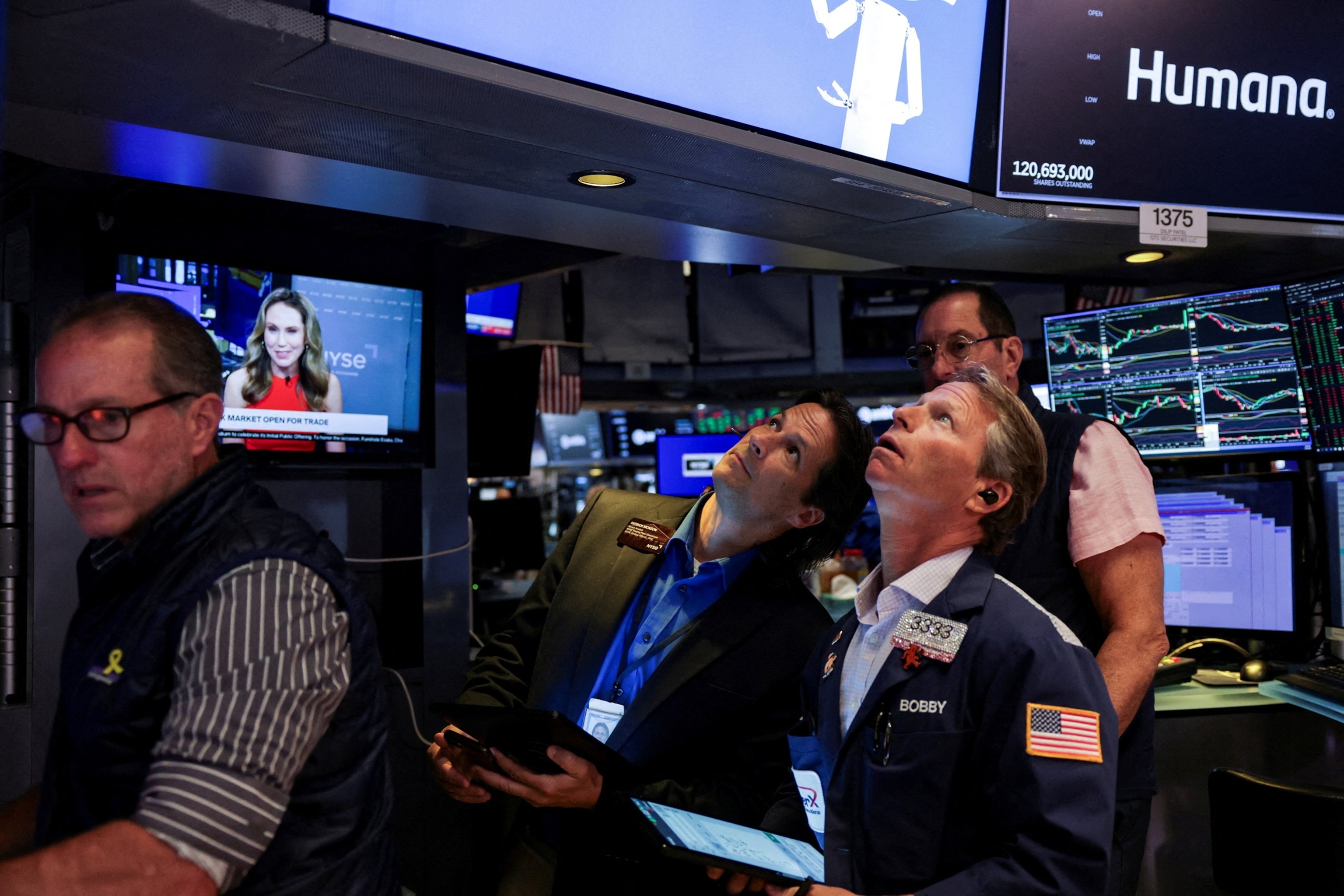The US actions fell into the first operations on Friday, only a few hours after President Donald Trump signed an executive order that slapping new rates to dozens of countries. A weak jobs report worsened to investors, revealing a deceleration of hiring in recent months as Trump’s previous tariffs seized.
The industrial average Dow Jones fell 615 points, or 1.3%, while the S& P 500 fell 1.6%. The technological heavy nasdaq decreased 2.1%.
Trump’s executive order on Thursday night established the rates that will be applied against almost 70 countries, ranging from 10% to 41% in what an administration official Trump acclaimed as the beginning of a “new trade system.” The new tasks are now in force on August 7.
Tariff rates resemble reciprocal rates that were placed in more than 90 countries on April 2, although there are some differences. These reciprocal tariffs were delayed 90 days when they triggered an important sale of shares and an increase in bond yields.
In early July, Trump delayed rates again, establishing a deadline on August 1.
The rates announced at night occurred hours before a job report on Friday morning showed a cooling marked in hiring, since Trump’s previous encumbrances were leaked through the economy in recent months.
The United States added 73,000 jobs in July, which arrived well below an average of 130,000 jobs added every month this year, according to data from the United States Labor Statistics Office, or BLS.
The report also provided new estimates for two previous months, significantly eliminating the estimation of the government of the added jobs in May and June. In May, the United States added 19,000 jobs, much lower than a previously estimated total of 139,000 jobs, said the BLS. While in June, the economy added only 14,000 jobs, checking a prior estimate of 147,000 jobs.

Merchants work on the floor in the New York Stock Exchange in New York City, on July 30, 2025.
Jeenah Moon/Reuters
“Today’s job report was disappointing since it lost the expectations of economists, but they are the marked reviews of the previous two months that really stands out,” said Bret Kenwell, an American investment analyst in Etoro, ABC News in a statement.
Friday seemed to interrupt the resilient performance of the stock market that dates back to months. After some market volatility in spring, investors have largely ignored Trump’s tariffs.
The Dow has risen 2% this year, while the S& P 500 has jumped 6%. Nasdaq has increased by 8%.
Together with a hottest inflation reading than expected on Thursday, job data “may have thrown some cold water into the rally,” Kenwell said.






